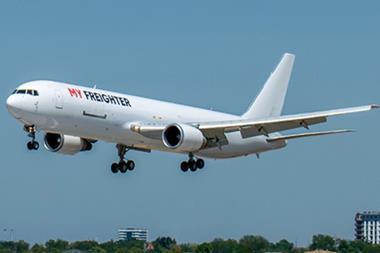Trade legislation crackdowns in the EU and US could hamper e-commerce supply chains as the air cargo industry gears up for peak season.
By early August a chorus of voices proclaimed the approaching end of the 2024 peak ocean shipping season. According to the National Retail Association, containerised imports to the US were set to peak in August and begin their retreat in September.
Shippers moved early this year to beat current and looming disruptions – from the situation in the Red Sea to a possible US east coast strike – and reeled in goods for the Christmas shopping frenzy ahead of schedule.
Tight vessel capacity and soaring container rates have fuelled airfreight demand for months. As this ebbs, the gaze inevitably turns to e-commerce, which has been the other engine driving the unexpected strength of the air cargo market this year.
Consumers are not showing any signs of flagging interest in online shopping from the likes of Temu and Shein, which are filling a growing host of freighters hauling cheap goods out of Asia.
Regulators in North America and Europe have other ideas. No less than four legislative proposals are before the US Congress that seek to curb the flow of duty-free imports, and the European Union is also looking to tighten access.
Proposals range from tighter monitoring of merchandise, with concomitant requirements for more data to be submitted ahead of shipment, to drastic changes of the de minimis rules that allow for duty-free imports.
While some of these moves are motivated by political grandstanding vis-à-vis China in a climate of escalating tension over subsidised exports threatening to undermine domestic industries, there are also serious concerns about abuse of de minimis rules as a loophole to smuggle contraband and drugs and mis-declaring shipments to avoid duties.
Together these elements form a potent force that looks set to impact the flow of goods that has kept airplane cargo holds full and airfreight rates at lofty altitudes.
There is another force at work, though, that lawmakers ignore at their peril – demand. Consumers are showing a huge appetite for those goods arriving in parcels supposedly worth less than de minimis thresholds.
Surveys show that shoppers find Amazon more reliable and offering better, faster service than the Chinese e-commerce behemoths, but low price trumps their buying decisions.
As one forwarder remarked, “trade is like water. It finds its way”. Which is why it would be better to monitor e-commerce flows and weed out illegal traffic rather than engage in a hopeless game of whack-a-mole.










